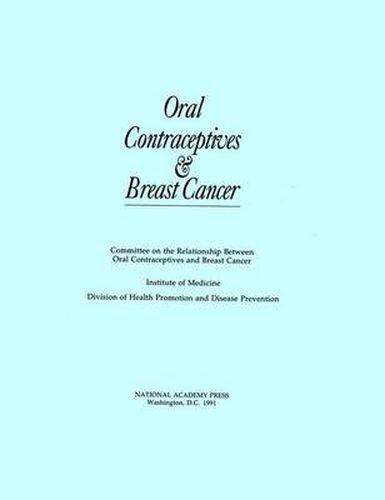Readings Newsletter
Become a Readings Member to make your shopping experience even easier.
Sign in or sign up for free!
You’re not far away from qualifying for FREE standard shipping within Australia
You’ve qualified for FREE standard shipping within Australia
The cart is loading…






At least 10.7 million American women use oral contraceptives (OCs). The potential connection with breast cancer has caused concern among these OC users and uncertainty among many of their physicians. This new volume offers the most up-to-date information available on this critical topic. While the best available knowledge does not support any fundamental change in clinical practice with respect to the use of OCs, this book offers specific recommendations for more research to fully resolve the relationship between OCs and breast cancer. Noting consumer confusion, the volume includes a concise summary of benefits, risks, and other practical information for contraceptive users and their doctors. The volume presents current data on changes in patterns of OC use, differences in risk at different ages, the benefits of OCs, and more. Oral Contraceptives and Breast Cancer will be important reading for obstetricians/gynecologists and other health professionals, their patients who use OCs, contraceptive manufacturers, women’s health advocates, policymakers, and researchers.
$9.00 standard shipping within Australia
FREE standard shipping within Australia for orders over $100.00
Express & International shipping calculated at checkout
At least 10.7 million American women use oral contraceptives (OCs). The potential connection with breast cancer has caused concern among these OC users and uncertainty among many of their physicians. This new volume offers the most up-to-date information available on this critical topic. While the best available knowledge does not support any fundamental change in clinical practice with respect to the use of OCs, this book offers specific recommendations for more research to fully resolve the relationship between OCs and breast cancer. Noting consumer confusion, the volume includes a concise summary of benefits, risks, and other practical information for contraceptive users and their doctors. The volume presents current data on changes in patterns of OC use, differences in risk at different ages, the benefits of OCs, and more. Oral Contraceptives and Breast Cancer will be important reading for obstetricians/gynecologists and other health professionals, their patients who use OCs, contraceptive manufacturers, women’s health advocates, policymakers, and researchers.